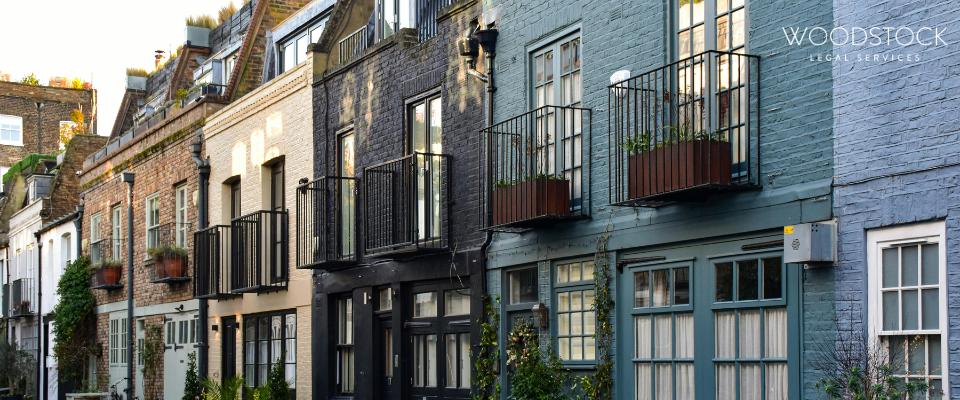Shared Ownership: Your Step-by-Step Guide to Affordable Homeownership

Buying a home can seem out of reach for many, with sky-high property prices and strict lending rules. However, the shared ownership scheme could be your key to stepping onto that first rung of the property ladder.
Residential conveyancing expert Gemma Fancini of Woodstock Legal Services explains how shared ownership can turn your dream of homeownership into reality.
In this guide, Gemma’s breaks down the shared ownership scheme step-by-step, making the process easier to understand.
Shared Ownership - At A Glance
- Shared ownership makes homeownership more affordable, letting you buy a portion of a property and pay rent on the rest.
- It's a great option for first-time buyers who may not have a large deposit saved for a traditional purchase.
- You can increase your ownership over time (known as staircasing) and potentially own the property outright.
What is Shared Ownership?
Shared ownership is a government-backed scheme designed to help people who can't afford to buy a property outright. With shared ownership, you purchase a share of a property (usually between 25% and 75%) and pay rent on the remaining share owned by a housing association or local council. This lowers your deposit and mortgage requirements, making your entry into the housing market more manageable.
Am I Eligible for Shared Ownership?
Before diving into the process, it's essential to determine whether you qualify for shared ownership. Eligibility criteria may vary slightly depending on the specific scheme and location, but typically include:
- Income Limits: There are maximum household income thresholds to ensure that shared ownership properties are accessible to those with modest incomes.
- First-Time Buyer Status: While shared ownership is often targeted at first-time buyers, exceptions may apply in some cases. You cannot already own a property at the time you complete on your shared ownership purchase.
- Property Suitability: You must demonstrate that you cannot afford a suitable home on the open market without the scheme.
- Local Connections: Some areas give preference to individuals with existing ties to the location.
How to Find Shared Ownership Properties
Once you've confirmed your eligibility, it's time to start searching for a suitable shared ownership property. You can browse available homes through housing associations, councils, or online property portals specialising in shared ownership listings. Consider factors such as location, size, amenities, and proximity to essential services when evaluating properties.
As a requirement of shared ownership properties when these are being re-sold, they first have to be offered back to the housing association or council. They then have a period of time to sell the property. Once that period has time has passed the property can be advertised on the local market. It is therefore advisable to register yourself with housing associations and your local council so you can be alerted once a property becomes available. You can also register your interest in a specific development.
Useful Shared Ownership Resources
Start your property hunt with these resources:
- Housing Associations: Many offer shared ownership schemes – search their websites for available listings.
- Local Councils: Check if your council runs a scheme and how to register your interest.
- Online Portals: Specialised websites focus on shared ownership properties and can narrow your search.
Important Note for Shared Ownership
Shared ownership properties offered for resale usually must first be offered back to the housing association or council. If they decide not to repurchase the property, then it can be marketed on the open market. Register with housing associations and your local council to be notified of new opportunities, as they can sell fast.
Financial Considerations of Shared Ownership
Purchasing a shared ownership property involves various financial considerations. Here's what you need to factor into your budget:
- Deposit: While shared ownership typically requires a lower deposit than traditional homeownership, you'll still need to save for an upfront deposit, typically around 5-10% of the share you're buying.
- Mortgage: You'll need to secure a mortgage to cover the cost of your share of the property. It's crucial to shop around for lenders who offer shared ownership mortgages and compare rates and terms to find the best option for your circumstances. Some housing associations and councils require you to carry out an affordability assessment with their mortgage broker.
- Service Charges and Rent: In addition to your mortgage payments, you'll be responsible for monthly service charges covering maintenance and management costs, as well as rent on the share owned by the housing association or developer.
- Legal fees: You'll need a conveyancing solicitor to handle the legal aspects of the purchase.
- Survey Costs: It's wise to get a thorough survey of the property before committing, even on new builds.
Staircasing: Increase Your Ownership Share
One of the unique features of shared ownership is the ability to gradually increase your share of the property through a process known as staircasing. This allows you to buy additional shares in the property over time, ultimately leading to full ownership.
Here's how it typically works:
- Assessment and Valuation: Before initiating the staircasing process, you'll need to have your property revalued to determine the current market value. This valuation will determine the price of the additional shares you wish to purchase.
- Notification: Once you've decided to staircase, you'll need to notify your housing association or landlord of your intention. They'll provide you with the necessary forms and guidance to proceed.
- Financing: If you're planning to finance the purchase of additional shares, you'll need to secure a mortgage for the increased amount. Similar to your initial mortgage, it's essential to explore various lenders and mortgage products to find the most suitable option.
- Legal Process: Like the initial purchase, staircasing involves legal processes such as conveyancing and ensuring all legal documentation is in order. We can guide you through these steps.
- Ownership Increase: Once all paperwork is completed, and funds are transferred, your ownership stake in the property will increase accordingly. You'll pay reduced rent on the remaining share owned by the housing association or council. Once you own 100% of your home, you can, depending on the terms of the lease.
Stamp Duty and Shared Ownership
Depending on the value of the property you may have to pay stamp duty. Stamp duty is a tax on property purchases. With shared ownership properties you can elect to make a one-off payment based on the market value of the property or pay stamp duty just on the share you are purchasing.
If you decide to pay stamp duty on the market value then you won’t need to pay any further stamp duty even if you buy more shares in the property. If you buy any more shares in the property, you do not have to pay any more stamp duty until you own more than an 80% share. Once your share of the property goes over 80% you must send pay stamp duty on the transaction that took you over 80% and any transactions after that.
Shared Ownership: The Pros and Cons
Shared ownership offers a viable pathway to homeownership for individuals and families who may face challenges in accessing the property market through traditional means. By understanding the intricacies of shared ownership, assessing your eligibility, and navigating the buying process diligently, you can embark on your journey to owning a home with confidence. With careful planning and the right support, shared ownership can turn your homeownership dreams into a reality.
Weigh these factors carefully before deciding:
Pros: Lower entry barriers, manageable payments, the potential to own outright.
Cons: Rent payments on top of your mortgage, restrictions on alterations, potential resale limitations
Specialist Conveyancing Legal Advice from Woodstock Legal Services
Shared ownership can be complex, so it is important to seek expert legal advice based on your individual circumstances.
Gemma Fancini can provide valuable insights and support throughout your shared ownership journey, ensuring a smooth and successful homebuying experience. Gemma can be contacted by email g.fancini@woodstocklegalservices.co.uk or by calling 01202 138910.
Contact Us
News & Insights










